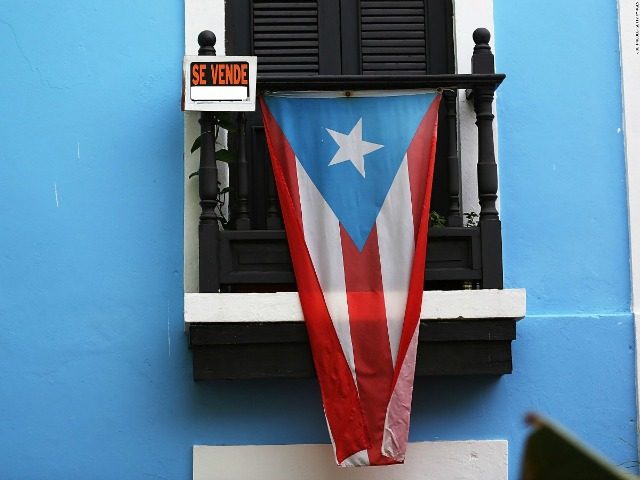While one of the most beautiful places on earth, Puerto Rico currently is struggling with a $70 billion dollar debt crisis, which has created a crippling economic downturn for the entire commonwealth.
Over 40 percent of the island’s population is unemployed, and many of Puerto Rico’s best and brightest are emigrating away due to the lack of financial opportunities. Today, as Puerto Rico struggles, we need all the key stakeholders helping manage this crisis to rise to the challenge and accept that difficult decisions must be made.
When the Congress, working with then President Barack Obama, created the Puerto Rico Oversight, Management, and Economic Stability Act (PROMESA) shortly after Puerto Rico’s default, I was pleased that some conservatives in Congress resisted calls to let the island sink into despair and worked in a bipartisan fashion with the White House to ensure that there was an organized structure – with leadership – to seek a fair and effective resolution to the situation.
As part of PROMESA, seven members were selected to the Oversight Board, whose job it was to put together a detailed plan that would both reduce expenditures, while at the same time instituting pro-growth reforms designed to make Puerto Rico a more compelling marketplace for investors and businesses.
After months of trying to develop a plan, and missing a self-imposed deadline, on March 13th, the Oversight Board approved a plan that proposes cuts to Puerto Rico’s spending and increases taxes, but would also force creditors to accept massive losses. It should be noted that recently-elected Governor Ricardo Rosselló helped to lead the creation of this plan and campaigned on trying to ease the burden of the cuts on the Puerto Rican people and secure the best possible deal from creditors.
Under the current Oversight Board plan, some creditors would be forced to accept an over 70% haircut, which will surely be unacceptable to most, if not all of the creditors which are owed billions of dollars by Puerto Rico. Further complicating matters, Puerto Rico has very little time to negotiate with these creditors, because the creditors will be allowed to take PROMESA to court on May 1.
PROMESA has also proposed that the Puerto Rico Electric Power Authority (PREPA) only take a 15% percent cut. This stands in stark contrast to the other creditors, most of whom will be facing a 77% haircut. In other words, if this plan goes through, this discrepancy will almost certainly lead to the creditors initiating lasting and painful litigation. Worse yet, there is no guarantee that PREPA would prevail in court. What is assured is that litigation will prolong the process allowing the island’s economy to continue its sad decline.
The Oversight Board was created by the Congress to be able to make the tough – but very necessary – decisions that will allow Puerto Rico to pay down its debt and move on to a better and brighter future. But what has become readily apparent is that in an effort to spare the people of Puerto Rico in the short term, they are risking the long term well-being of the commonwealth. I am sympathetic to the plight of the Oversight Board, the Governor and the people of Puerto Rico. I do understand their desire to force creditors — some of whom made risky bets – to accept losses in order to spare the poor and downtrodden. But the reality of the situation is that PROMESA and the Governor have to make difficult decisions and accept what Congress laid out when it created PROMESA: that all creditors must be treated both fairly and equitably.
I hope that PROMESA, the Oversight Board, the Governor, PREPA and all of the creditors can come together and negotiate a package that allows everyone to move forward without seeking the help of the courts. There is no way to sugarcoat things – all the stakeholders need to make some hard decisions. In the long term though, it will the best thing for Puerto Rico because it will ensure the commonwealth remains open for business and an economically viable part of the United States.
Solomon Ortiz, a Texas Democrat, served in Congress from 1983 – 2011

COMMENTS
Please let us know if you're having issues with commenting.